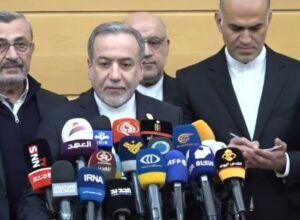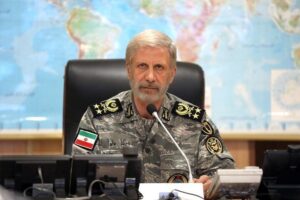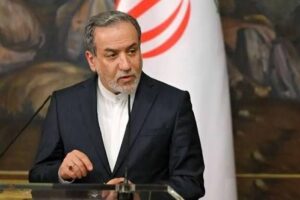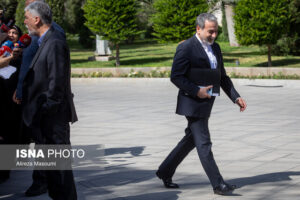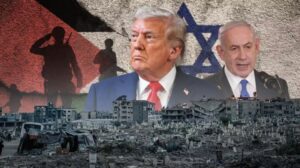Judiciary Chief Gholamhossein Mohseni Ejei, in a meeting with Seyyed Ammar al-Hakim, head of Iraq’s National Wisdom Movement, in Tehran, said:
“We are not afraid to listen to the words of the other party, even if it is our enemy—provided that it does not speak forcefully or seek to impose its arrogant motives.”
Mohseni Ejei welcomed al-Hakim, highlighting the strong relationship between Tehran and Baghdad. He said: “The events of recent years show that enemies oppose a strong and developed Islam and cannot tolerate powerful Muslims.”
Referring to the Islamic Republic’s stance on war and peace, Ejei stressed that Iran has never initiated a war and never will. However, he added, Iran will never surrender to hegemonic powers, nor will it accept either an “imposed war” or an “imposed peace.”
He recalled that Iran’s resilience during the 12-day war strengthened its standing: “The enemy and its allies wrongly assumed the Islamic Republic would collapse, but Iran’s steadfastness during the war made the country dearer and stronger in the eyes of the world. The Zionist regime, since its illegitimate creation, had never suffered such a heavy blow. Iran’s success in this war brought pride to the entire Islamic world.”
Ejei underlined that Iran’s logic is dialogue from a position of strength while rejecting any kind of coercion or bullying.
“The Islamic Republic seeks dialogue and wisdom. Our stance is clear: we will not compromise on our rights, which are also recognized under international law. If the other party defines negotiation as ‘whatever we dictate, you must accept,’ it will never be accepted by Iran.”
He added: “We will not accept the enemy’s words if they are based on force. But according to our Islamic logic, we are not afraid to listen, even to our enemies, so long as their words do not amount to coercion or arrogant imposition.”
Ejei emphasized Iran’s neighborhood-centered policy: “Strengthening relations with neighbors is one of our priorities. Iraq holds a special place due to the many commonalities between the two countries. We have no hostility toward any of our neighbors—even those aligned with our enemies—unless they create problems for us as part of the enemy’s schemes.”
For his part, Ammar al-Hakim praised the sympathy and solidarity shown by both Shia and Sunni Muslims with Iran during the 12-day war. He described Iran-Iraq ties as going beyond a mere neighborly relationship, citing deep historical, cultural, and geographical bonds.
“The trade exchanges between the two nations have great potential for expansion,” al-Hakim said.

